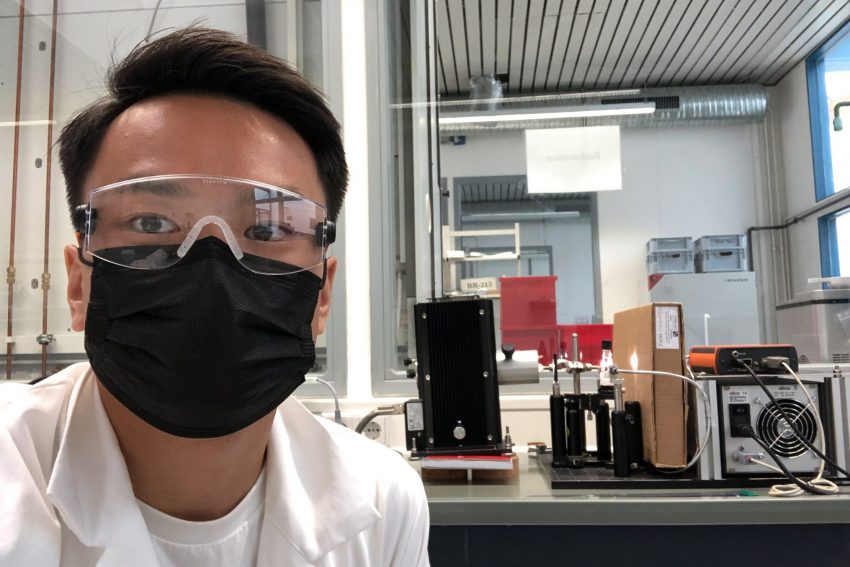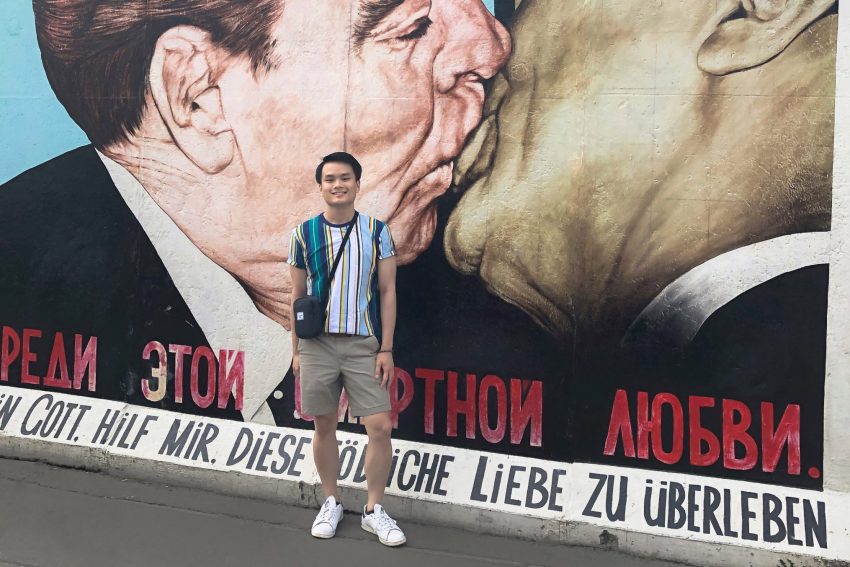Mail from … Braunschweig Aaron Li from the USA completed a research internship at the Institute of Physical and Technical Chemistry and talks about his experiences
This is what I am doing in Braunschweig:
I am doing a summer research internship in the field of physical chemistry and will be here for a total of 10 weeks.
That’s why I decided to come to TU Braunschweig:
I was interested in the research conducted by Prof. Tschierlei’s Group and the contents of the proposed procect.

Hi! My name is Aaron Li. I spent ten weeks doing research in the field of physical chemistry at TU Braunschweig. Photo credit: Aaron Li/TU Braunschweig
Living in Braunschweig
This is how I live in Braunschweig:
I am living in university dormitory shared with one other person.
What is the difference between studying or researching in Germany compared to your home country?
Researching differs a bit but has some similarities in Germany compared to my home university in the US. The experimental, analysis, design, and work ethics are very similar in both. A difference would be that there is greater pressure to produce results and have the technical and theoretical knowledge firmly understood, leaving little room for trial and error or failure in my home university compared to my experience at TU Braunschweig. Compared to my home university, here at TU Braunschweig the members of the group collaborate and work together to accomplish thingswhich differs from the more individualist work from my home university.

The research work in Prof. Tschierlei’s group was really exciting and interesting! Photo credit: Aaron Li/TU Braunschweig
What is the difference between everyday life in Germany and in your home country?
Everyday life in Germany tends to be similar but some key differences have been a culture shock or provided difficulties. German restaurants and expected etiquette are quite different from American restaurants. The number of places serving alcoholic beverages and the amount of people allowed to smoke cigarettes at restaurant tables is quite different as well. The people also tend to be quieter and make less small talk than what I am used to seeing or hearing at home.
That’s what I learned here in the first three days:
In the first three days, I learned that not having any German language skills would make it a bit hard to find things and to adapt. But I also learned that many German people tend to be multilingual and that you need to make sure to not walk in the bike lane.
The biggest challenge during my stay so far has been:
The language barrier has been difficult to overcome, but it has been less challenging in larger cities where many people speak English well. Though, it has been a little difficult in explaining and understanding scientific information.
What I will take home with me from here:
I will take home a lot knowledge that I have learned about German culture and customs for a variety of things from politics to food or everyday gestures or colloquial phrases. I will also bring souvenirs and chocolate which has been one of my favorite things I have enjoyed in Germany.
Good to know
This is my tip for other international students or academics who are planning a stay abroad in Germany or are currently doing so:
Try speaking up and with others, even if there is a language barrier, because a lot can be learned without totally needing to understand all of the words spoken.
In my opinion, this is something that you should definitely try out in Braunschweig/Germany:
The beer and visiting different cities in different regions of Germany.
This is something I would like to add:
Work life balance and ethic of German researchers is very balanced and it is ok to request time off.

